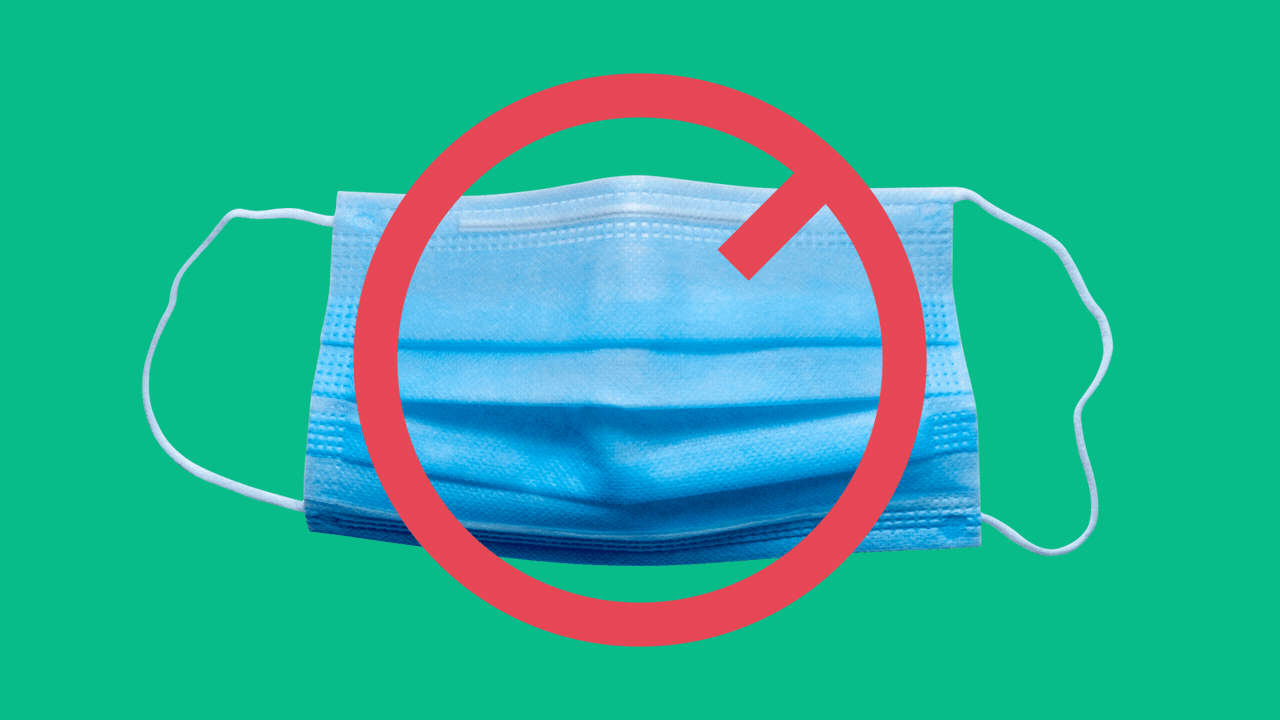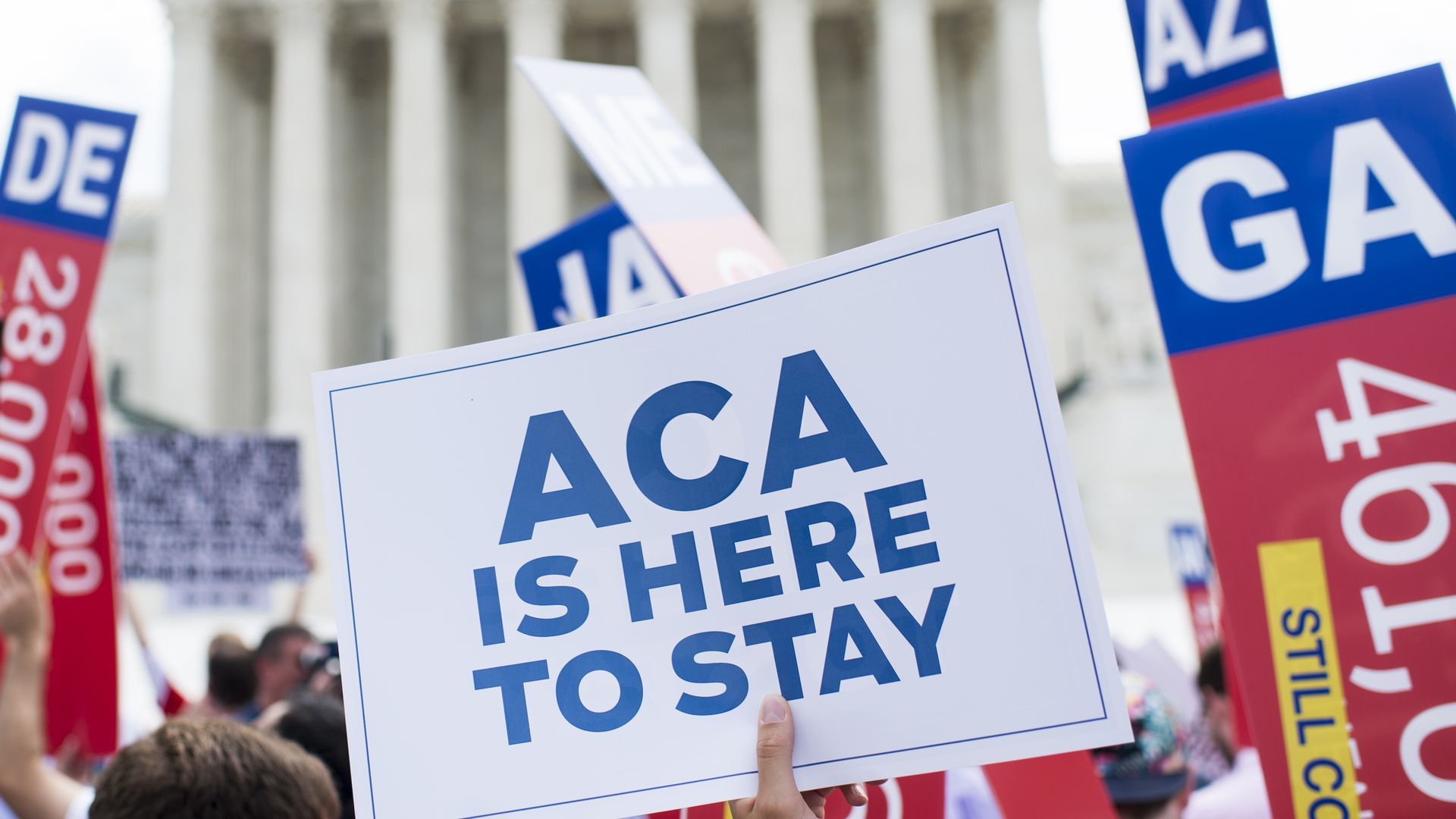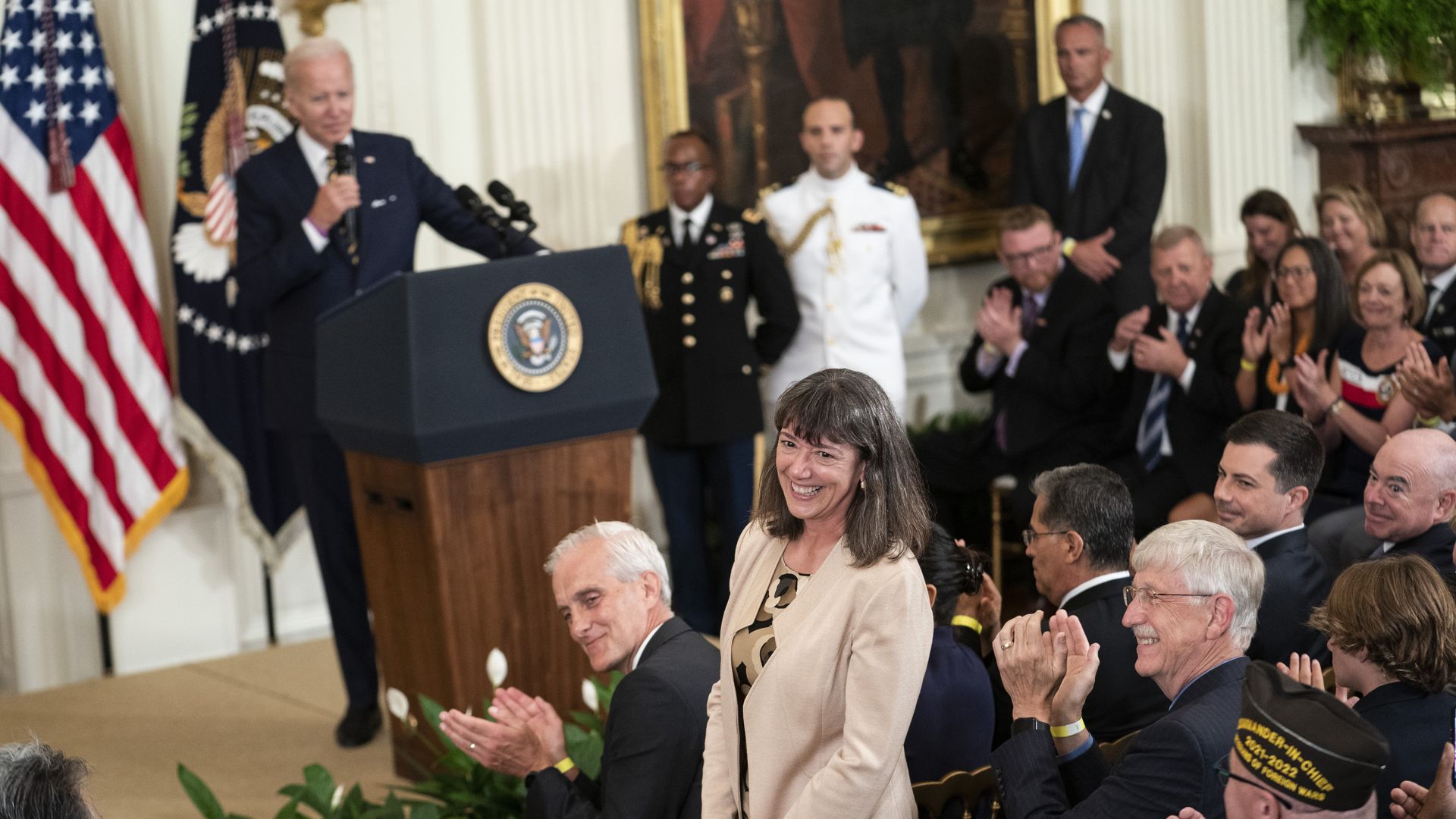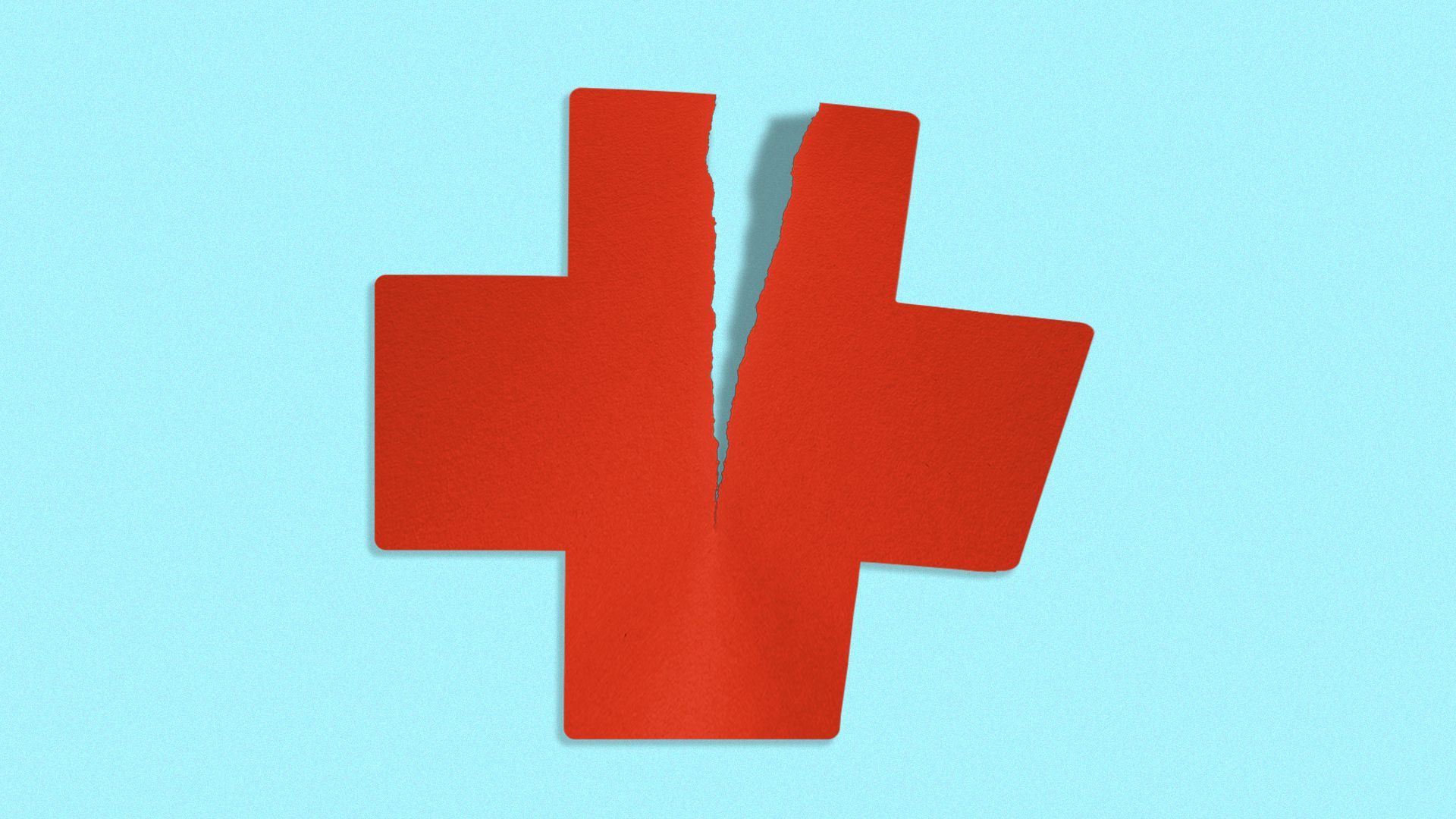| | | | | | | Presented By Kaiser Permanente | | | | Axios Vitals | | By Tina Reed · May 16, 2023 | | Good morning, Vitals readers. Today's newsletter is 1,078 words or a 4-minute read. | | | | | | 1 big thing: The debate over continued masking in health care settings |  | | | Illustration: Brendan Lynch/Axios | | | | The deep divide over masks that was a hallmark of the pandemic is splitting the medical community, where many health workers and their patients, now free of mandates, are opting not to wear them. Driving the news: The demise of CDC and state mask orders for medical settings has been welcomed by providers who worried about a loss of connection with patients, or communication challenges with those with hearing loss. - It's also welcome for those patients who found them uncomfortable and questioned their benefit amid waning community spread of COVID-19.
- But for others, it marks the end of a critical line of defense against COVID — particularly for the most vulnerable patients — in one of the last settings where they could expect precautions.
What they're saying: "This is a time when a lot of hospitals, including, ironically, my own hospital, are making masks optional," said Tara Palmore, an epidemiologist at George Washington University Hospital in Washington, D.C. and co-author of a commentary published in the Annals of Internal Medicine Monday. - The concern is "the idea that we could inadvertently make patients sick by exposing them to our own illnesses," she said. "We can protect ourselves by wearing masks. We can also protect patients."
- Health care workers' well-established history of coming to work sick further supports the continued use of masking, Palmore and others say.
Yes, but: A review also published Monday in the Annals of Internal Medicine found little to moderate benefit to masking in communal settings, and a similar risk for COVID-19 infection in routine medical settings for those wearing surgical masks and more snug N95 respirators. - Researchers couldn't rule out there might be some benefit to wearing N95 respirators.
- A study, presented last month at the European Congress of Clinical Microbiology and Infectious Diseases in Copenhagen, found that hospital mask rules didn't stop the spread of COVID in the absence of other precautions, meaning institutions could adopt "mask optional policies" without increasing risks to patients, the Los Angeles Times reported.
The big picture: The medical consensus still supports the use of high-quality masks to reduce the transmission of COVID and other infectious diseases and many providers are still using them, particularly in certain settings where vulnerable patients are more likely to be seen. - "The long and short of it is: Masking is a good thing and we should use it as we need it," Tania Bubb, the president-elect for the Association for Professionals in Infection Control and Epidemiology, told Axios.
Go deeper. |     | | | | | | 2. Court freezes preventive services rule decision |  | | | Photo: Bill Clark/CQ Roll Call | | | | A federal appeals court on Monday froze a lower court decision that scrapped the Affordable Care Act's requirement that employers fully cover the cost of specified preventive health care services, Axios' Oriana González writes. The big picture: The New Orleans-based U.S. 5th Circuit Court of Appeals temporarily blocked U.S. District Court Judge Reed O'Connor's ruling that put in jeopardy coverage for certain cancer screenings, behavioral counseling, HIV prevention and other services recommended by the U.S. Preventive Services Task Force. - About 6 in 10 people with private health insurance, or roughly 100 million, use ACA-covered preventive health services each year, per the Kaiser Family Foundation.
Details: The conservative-leaning 5th Circuit issued an order granting an administrative stay while it reviews the case. What this means: At least for now, no-cost coverage for preventive services is still required under the law. |     | | | | | | 3. What's next for NIH nominee |  | | | Photo: Sarah Silbiger for the Washington Post via Getty Images | | | | Among the subplots surrounding Monica Bertagnolli's nomination for NIH director is how Senate health committee Chair Bernie Sanders uses confirmation hearings to press for answers on march-in rights to lower drug costs, Axios' Adriel Bettelheim writes. Why it matters: NIH has a key role in deciding if there's justification for the government to take over a drug patent and license it to other manufacturers in order to lower the price. - Progressives have been agitating for the Biden administration to use the option for the first time and crack down on what they regard as patent abuse.
- But NIH in March rejected a petition to break the patent of the prostate cancer drug Xtandi, saying the treatment was widely available to the public and that march-in rights weren't an effective way to lower the price.
Where things stand: Sanders, who'll preside over hearings on the nomination as HELP Committee chairman, has said he will "strongly oppose" any major federal health agency nominee who isn't prepared to significantly lower drug prices. - Those concerns could complicate the confirmation process while Republicans voice criticisms of the agency's funding of gain-of-function research and other lawmakers press the administration on lagging efforts to study long COVID.
- All of the factors could have a bearing on NIH's funding in fiscal 2024.
What we're watching: The Biden administration is reviewing march-in authority, with an interagency working group developing criteria, including price, to justify making such a move. |     | | | | | | A message from Kaiser Permanente | | See all that health care can be | | |  | | | | Some health care experiences can be fragmented and impersonal, with the responsibility on the patient to make it work. But at Kaiser Permanente, everything works together to provide equitable, high-quality, affordable care and coverage that support the unique needs of each member. See how. | | | | | | 4. Envision declares Chapter 11 |  | | | Illustration: Gabriella Turrisi/Axios | | | | Envision Healthcare, the medical staffing company owned by KKR, filed for Chapter 11 bankruptcy Monday, ending a years-long saga, Axios' Aaron Weitzman and Claire Rychlewski write. Why it matters: It could be one of the largest health care-related bankruptcy cases ever, the Wall Street Journal reports. Details: Nashville-based Envision estimated assets and liabilities in the range of $1 billion to $10 billion each, the company said in a court filing. - Envision declined to comment beyond what it said in the filing.
Catch up quick: KKR was the fourth private equity firm to own Envision, acquiring the business for $9.9 billion in 2018. - High labor costs, an ongoing battle with insurer UnitedHealth around emergency room claims, and federal legislation aimed at clipping surprise medical bills have dragged down the company's margins in recent years.
- In March, Envision missed a deadly to report quarterly financials and skipped an interest payment due in April.
What we're watching: Envision's ambulatory surgery unit Amsurg, is a logical candidate to be spun off, given it's less affected by hospital volumes and the No Surprises Act, one health care banker says. A version of this story was published first in Axios Pro Health Tech deals. Start a free trial at AxiosPro.com. |     | | | | | | 5. Catch up quick | | 👀 United colonoscopy coverage change "may cost lives," doctors say. (STAT) 🧠 A mutation protected a man from Alzheimer's disease, hinting at a treatment. (New York Times) 💰 A rural county's choice: Use opioid funds to pay off debt, or pay them forward to curb crisis (KFF Health News) 🏛 The FTC will challenge Amgen's $28 billion Horizon buy. (Bloomberg) |     | | | | | | A message from Kaiser Permanente | | See all that health care can be | | |  | | | | Some health care experiences can be fragmented and impersonal, with the responsibility on the patient to make it work. But at Kaiser Permanente, everything works together to provide equitable, high-quality, affordable care and coverage that support the unique needs of each member. See how. | | | | Thanks for reading, and thanks to senior health care editor Adriel Bettelheim and senior copy editor Bryan McBournie for the edits. |  | | Dive deeper into the future of health care | | | | | | Axios thanks our partners for supporting our newsletters.
Sponsorship has no influence on editorial content. Axios, 3100 Clarendon Blvd, Arlington VA 22201 | | | You received this email because you signed up for newsletters from Axios.
To stop receiving this newsletter, unsubscribe or manage your email preferences. | | | Was this email forwarded to you?
Sign up now to get Axios in your inbox. | | | | Follow Axios on social media:    | | | | | |
No comments